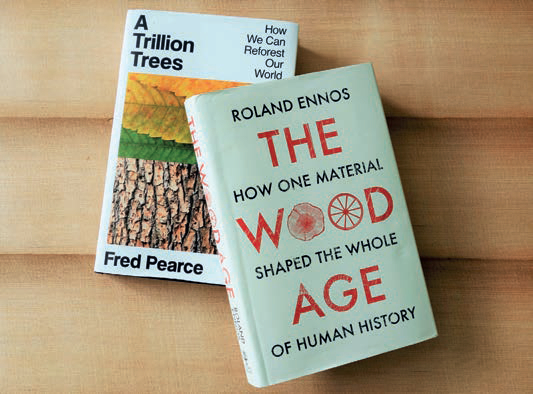Marlon Brando understood
13 December 2021John Park suggests two Christmas present list essentials for everyone
If wood didn’t exist, neither would we! I have used that before but hopefully together with the heading you are captivated sufficiently to read on – and to buy the books!
July 2014, from my WTS Newsletter: In “The Times” Saturday Review recently Kate Muir did a review of ‘Brando’s Smile: His Life, Thought and Work’ by Susan L Mizruchi. She wrote “Brando’s tastes were broad and sophisticated: on his bedside table when he died in 2004 were Stephen Hawking’s “A Brief History of Time”, Jung’s “Man and His Symbols”, James Gleick’s “Chaos, The Great Music of Duke Ellington” and (more puzzlingly) “The International Book of Wood””.
On the cover of “The International Book of Wood”, from Hugh Johnson’s foreword, it notes “This book puts on record what Man owes to trees and their wood. He has no older or deeper debt.”
As I noted at the start, wood, as with many other things, gets much more interesting and involved once you are on the inside. I shall perhaps drop Ms Muir a line (I never did) to suggest that she herself might like to explore inside “The International Book of Wood”; maybe then she would not be so puzzled by Marlon Brando’s inclusion of it in his final book selection.
And, talking of book selection, it’s always a useful exercise, browsing in one of those repositories of wood fibre, aka a bookshop. My first find was “The Wood Age – How one material shaped the whole of human history”, in which Roland Ennos adds considerable and fascinating substance to that one-liner of mine.
From the dust jacket blurb: “In The Wood Age, Roland Ennos shows that the key to humanity’s success has been our relationship with wood. He takes us on a sweeping ten-million-year journey from great apes who built their nests among the trees to early humans who depended on wood for fire, shelter, tools and weapons; from the structural design of wheels and woodwinds, to the invention of paper and the printing press. … how our ability to exploit wood’s unique properties has shaped our bodies and minds, societies and lives. … tells the story of our evolution, our civilisations and our future through the lens of the material that made us. We are products of the Wood Age.”
And you will recall from school history lessons that three of the Ages through which mankind has progressed were Stone, Bronze and Iron through all of which Wood has been the constant staple but which, unless you happen to have had an exceptional history teacher (mine was dire!) never gets a mention. The Wood Age encompasses all of them, and much more.
Then, during a subsequent browse, I happened upon “A Trillion Trees – How We Can Reforest Our World”. “Taking us from the barren sites of illegal logging and monocrop farming to the smouldering rainforests of the Amazon, Fred Pearce tells a revelatory new history of the relationship between humans and trees – and shows us how we can change it for the better. Combining vivid travel writing with cutting-edge science, “A Trillion Trees” is both an environmental call to arms and a celebration of our planet’s arboreal riches.” And it is truly revelatory.
We have come a long way with wood but for much of that journey since the Industrial Revolution have taken it almost entirely for granted. In addressing that, environmental organisations have in some cases lost sight of the real masters of managing forest ecology. And if you thought carbon sequestration is the reason why we should be planting more trees, think again.
If you profit from wood in even a small way, you should read these books as a priority. Every home should have them, they should be mandatory in the National Curriculum, and they are utterly fascinating. Happy reading and Happy Christmas.

